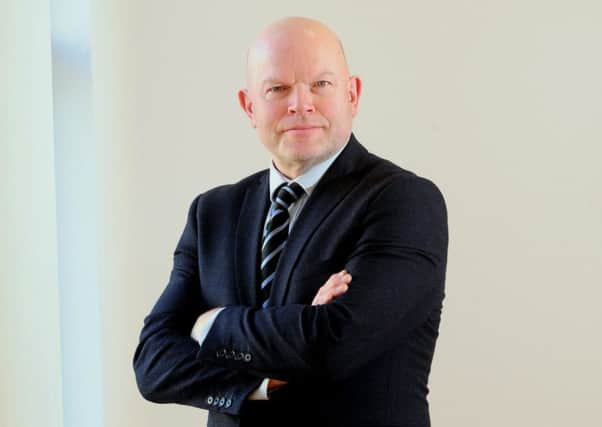Academies chief defends large salaries for non-teaching staff


Sir John Townsley, the chief executive of the Leeds-based The Gorse Academies Trust (TGAT), said that where performance is exceptional across a wide and challenging brief, it is “right and fitting” that pay reflects that.
His comments come after the Parliamentary Under Secretary of State of Schools, Lord Agnew, wrote to the boards of all academy trusts in England last month, highlighting that the financial health and sustainability of the organisations – which run chains of schools – should be a “key priority” for leaders.
Advertisement
Hide AdAdvertisement
Hide AdIn the letter, he said the chief executive of the Government’s Education Skills and Funding Agency, Eileen Milner, would be writing to multi-academy trusts where non-teaching employees are paid more than £150,000.
He said that he did not believe that “all boards were being rigorous enough on this issue” and warned that he would not expect the pay of chief executives to rise faster than the salaries of teaching staff.
He wrote: “CEO and senior pay should reflect the improvements they make to schools’ performance and how efficiently they run their trusts.
“My view is that we should see a reduction in CEO pay where the educational performance of the schools in the trust declines over several years.”
Advertisement
Hide AdAdvertisement
Hide AdSir John is paid more than £200,000 and TGAT is responsible for 10 schools in Leeds, including a sixth-from college. The trust has a track record of transforming failing schools. Of the seven schools in the Gorse family that have been inspected, six have been judged to be ‘outstanding’ by the schools watchdog Ofsted.
In the context of multi-academy trusts, Sir John said exceptional leadership performance should include “ensuring financial robustness, acting with rectitude and decency at all times and, perhaps most importantly, establishing and maintaining excellence in educational standards for all children including those whose lives are characterised by privation where previous standards were poor”.
He added: “There have, of course, been a small number of appalling examples where this has not been the case. As we are now working to support Hanson Academy in Bradford, we have become all too aware of what happens when rogue trusts, such as Wakefield City Academies Trust (WCAT), engage in unchecked vanity projects.
“Their work at Hanson Academy worsened the school’s position and extracted significant funding from a school already facing great financial challenge.
Advertisement
Hide AdAdvertisement
Hide Ad“No one should receive pay of any kind for failing our children. And that ranges from the unprofessional to the mediocre.”
WCAT faced criticism over financial management after a shock announcement last September that it would cease running 21 Yorkshire schools. Claims have since been made that the organisation transferred millions of pounds from some of the individual academies to its own accounts. The trust and Department for Education have been working to find new organisations to run the schools.
Accounts published last month show WCAT expects to return a surplus when it is wound up.